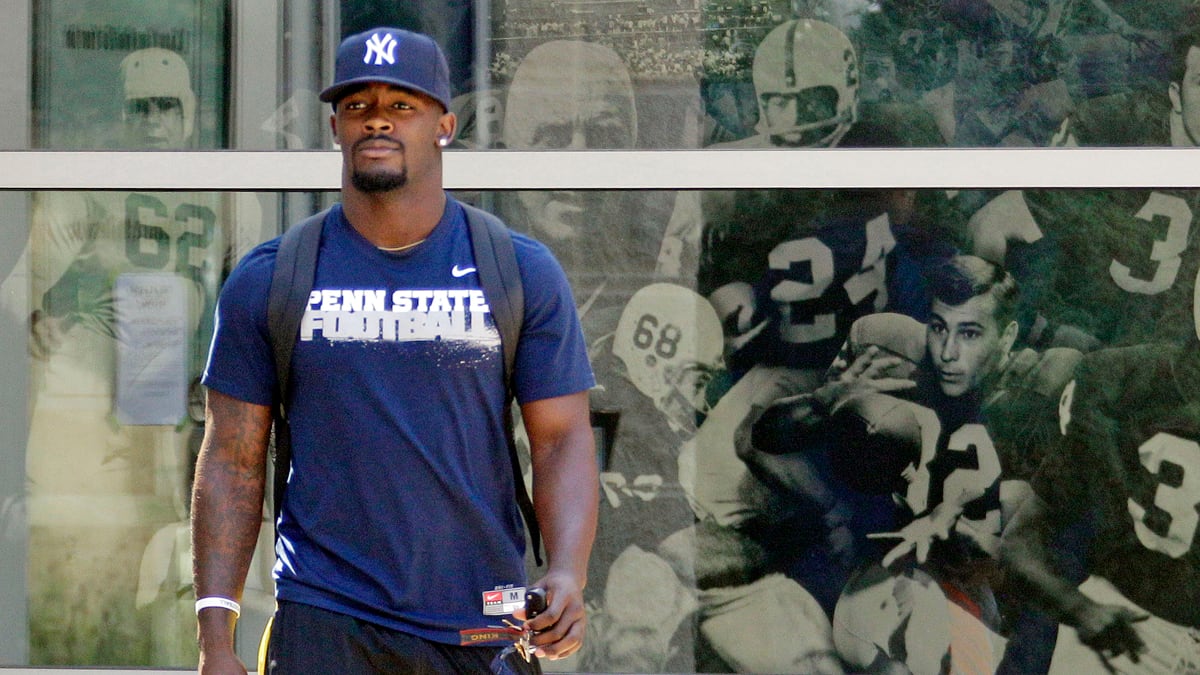Did the NCAA do the right thing? Absolutely. This is very simple. Penn State’s functional position since 1998 has been that football was more important than the sexual molestation of boys. That went up to the top: the head coach, the athletic director, and the president. The NCAA’s job yesterday was to say to the university that that was malevolent and sickening; and to say to other universities that you better never, ever let anything like this happen. Mission accomplished. These sanctions will change college football, a little, for the better. They will decimate Penn State football. And they remind us that yes, some crimes are so vast that even the innocent have to pay a price before things are set right and the cosmic scales are once again balanced.

There are three complaints circulating about the NCAA’s moves: that Penn State violated no bylaws (because no athlete was paid improperly, no quarterback’s father accepted a free round of golf and chili dog, etc.); that due process was denied the university because the NCAA didn’t conduct its own investigation and give Penn State a hearing; and that $60 million is a pretty hefty fine for a nonprofit institution, whose effects could reverberate widely. Let’s have a look at them.
The first two complaints seem completely bogus to me. Like every organization, the NCAA has among its rules and bylaws some general provisions that member organizations must uphold basic standards of decency. The NCAA lists them here. Section 2.4, for example, advises that athletic personnel “should adhere to such fundamental values as respect, fairness, civility, honesty and responsibility.”
Not clear enough? Then check out 19.01.2, Exemplary Conduct: “Individuals employed by or associated with member institutions for the administration, the conduct or the coaching of intercollegiate athletics are, in the final analysis, teachers of young people. Their responsibility is an affirmative one, and they must do more than avoid improper conduct or questionable acts. Their own moral values must be so certain and positive that those younger and more pliable will be influenced by a fine example. Much more is expected of them than of the less critically placed citizen.” Of course, that’s one they probably ought to invoke more often, but it’s certainly apposite here.
The due-process complaint is equally lame. The NCAA is acting on the authority of the Freeh Report, which Penn State has accepted. There was no need here for another investigation, wasting another million dollars and another year, letting the university kick off the season this September without any official penalties being in force. We know everything we need to know, and the NCAA knew enough to act. And it’s kind of hard to gripe when the president and board of trustees accepted the NCAA ruling, which they did.
Finally, the fine. This may be more complicated. The $60 million figure, which the university must put into an endowment for programs that fight child abuse, is the equivalent of one year’s worth of football revenue. Typically that revenue is used to support nonrevenue sports. NCAA president Mark Emmert said at Monday’s press conference that “we are insisting that this [money] not come at the cost of reduced programs in the athletic department and other student scholarships.” So it sounds like the fine could harm non-athletic functions.
The nuclear bomb, of course, is the erasure of 110 wins for Joe Paterno. The images of that statue coming down Sunday, followed by this, the NCAA’s ensuring that Paterno’s name is wiped from the record books—astonishing stuff. We live in a society where people who have half the stature of Paterno and commit crimes pay little or no price for what they’ve done. Paterno’s reputation is now dead. He’ll continue to get a mixed hearing in Happy Valley, and I guess they may keep his name on that library. But nationally, Paterno lore is gone, and probably forever. We have never seen a nosedive this dramatic in the recent history of this country.
There could be more reverberations. What are they thinking at Big Ten Conference headquarters these days? On Monday the conference, more quietly than the NCAA, fined Penn State $13 million. Technically, the amount represents Penn State’s expected share of conference bowl-game revenue, which the conference will be withholding. Without a powerhouse football team, is Penn State even attractive to the Big Ten? Its basketball team sucks and always has. Every Big Ten school has either a good football or basketball program, one or the other. If a school has neither, what will conference officials conclude that school is contributing?
I still think the university ought to cancel a year of football on top of all this. Impose a sanction on itself, merely to say to the world, “we get it, this was ultra-ultra-serious.” The NCAA has made a statement about its values. Penn State still hasn’t made one about its. And yes, innocent people will suffer (although all previously recruited players will get to keep their scholarships if they want to and keep going to class, and after all that’s why they’re there, right? Right?). But that’s how life goes sometimes. Bernie Madoff had three floors’ worth of innocent employees working for him on Third Avenue, and another couple dozen in London. We don’t cry for them, and there’s a reason we don’t. What Madoff did was so heinous it overruled our concern for those folks. Same thing here.
I love college football. My favorite sport. But it is just a game. Fans more than anyone else must believe and say this. The NCAA, not exactly our usual standard for an organization that sets society’s moral tone, did the right thing. The university still should too.





